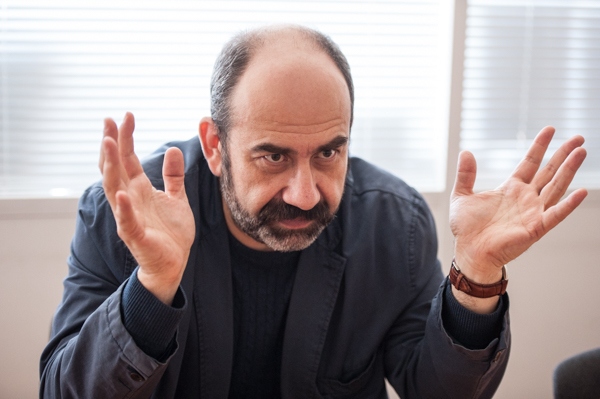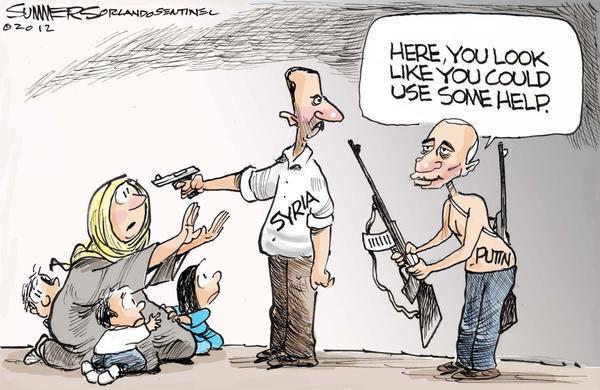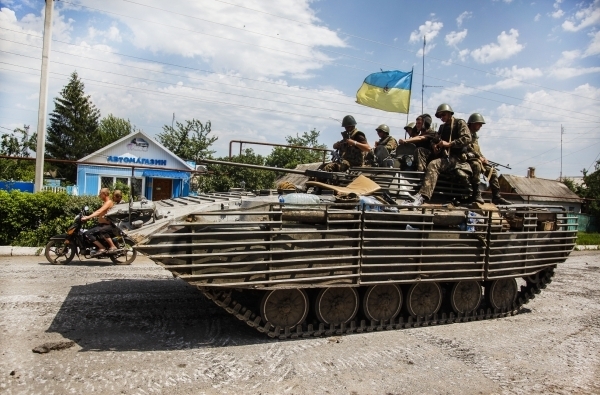The ongoing “zombification” of Russian society and especially of young people and intellectuals is “a guarantee of the continued rule” of the Putin regime, but it is destroying the prospects for the development of Russia now and in the future, according to Dmitry Strovsky, an outspoken professor of journalism at the Urals Federal University.
In a wide-ranging interview with Aleksandr Zadorozhny of Znak.com, Strovsky who has been in hot water before for his criticisms of Moscow’s policies on many issues argues that the narrowing and closing of the Russian mind under Putin is already having tragic consequences.
Moscow’s efforts to limit the range of information and interpretations people have has led to “the colossal problem” of a rise of a new generation whose “quality is falling catastrophically.” Because of shortcomings in their earlier educations, he says, they increasingly act as if there was no history before their appearance on the earth.
Many of the students he sees do not know what happened in Russia over the last two decades. For them, “the 1960s and 1970s are as distant as the times of Napoleon and Kutuzov” are for their elders. And all too often, “the 1930s are just as far away as … the Tatar-Mongol yoke.” They thus lack any basis for judging their own times, and the Kremlin exploits this.
There are many reasons why this has happened, Strovsky says. “One of them is that today in schools work people who received their training” as the Soviet Union was falling apart, “when the former history was rejected but at the same time, it was absolutely unclear what history we would create today.”
“Having finished university, these people formally are considered pedagogues, but what can they give to students when they themselves” formed at such a time of uncertainty lack “an integral worldview” and have “only the most cloudy idea about where we have come from and where we are going,” he continues.
Moreover, Strovsky says, there was a breakdown in the transmission of values from parents to children. Few of the latter are in close contact with the former and “only a handful knows who were their grandfathers and grandmothers let alone deeper family roots.” They thus have no idea what was good and bad in the past and what is “permissible.”
Instead of families and books, the authorities for this rising generation “have become the mass media,” which all too often presents the most “primitive” “black and white” views of whoever is in power – especially when journalists are actively discouraged from presenting discussions of issues and told to put out one version of reality.
And because many Russians are disconnected with the past, they have no basis for judging what those in power are introducing in their lives. For example, Strovsky says, the Kremlin has introduced the term “national traitor” into the Russian lexicon, something it could do because few know that Adolf Hitler used it in his “Mein Kampf.”
“The entire world has condemned Nazi ideology, including at Nuremberg. But now, in the new millennium, it turns out that we are publicly approving some of its obscurantist ideas.” That would have seemed preposterous and absurd only a decade ago, but now it is happening – and few understand the origins of these notions.
Indeed, Strovsky says, what is going on “recalls the times of the flourishing of totalitarian regimes – in the Soviet Union, Nazi Germany, and fascist Italy. The ‘unity’ of those in power and society, the euphoria on the occasion of grandiose successes on the way to ‘a bright future,’ the absence of doubt, and the subordination of people in the cultural sphere to the interests and the priorities of those in power are all present.”
According to Strovsky, “the key task of totalitarian ideology is to eliminate the experience of the past and to eclipse it with the absolutization of the present day” because that allows those in power to make any shift without having to explain their reasons.
“Totalitarianism destroys the links between cause and effect,” the Urals scholar says. And today, the Putin regime is doing what the Bolsheviks did in the 1920s and the Nazis did in the 1920s, eliminating any possibility that people will be able to draw on the experience of the past to criticize the present.
Another reason that the Putin regime has been able to move in this direction is the amount of poverty in Russia. “The pro-Putin majority is relatively poor,” and its members need not only goods but confidence that the state will ensure that they get at least the minimum even if it denies them the opportunity to get more.
For such people, “to be a totalitarian man … is simpler, more comfortable and more profitable” than not to be. “The aura of the unknown disappears, the individual hopes for ‘a strong hand,’ and he feels himself in a more comfortable position.” Moreover, this becomes the basis for supporting the current regime because “if the state dies, so too do the personal plans of such a person.”
“’Non-totalitarians,’” in contrast, he argues, are “creatively oriented, thinking and doubting” and their chances of retaining memory are somewhat higher. But unfortunately, In life, [they] often are fated to greater complexities,” and thus this is not attractive to many, including many who think of themselves as intellectuals but who want a comfortable life.
Indeed, Strovsky says, there are ever fewer genuine intellectuals, people prepared to question authority and challenge it. Instead, they are quite prepared to use “the newspeak” the regime employs to hide its goals and to seek the best possible places for themselves rather than to live up to their calling.
Increasingly and mirroring the behavior of those in power, they focus only on immediate tasks and thus both create ever more problems for society in the longer term, he argues. That is what is happening in education and culture in Russia today. The powers that be may be getting a loyal group of subjects, but they are ensuring that Russia will suffer even more in the future.





